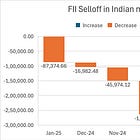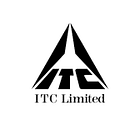Indigenous Investors Weekly Insights!
Top 3 well curated stories from the stable of Indigenous Investors incase you missed them. These can range from finance to sports, depends on what made the headlines. Stay tuned.
This week, we cover the following:
ITC makes a bold acquisition of Rs 3,500 crores into pulp and paper segment
Haldirams valued at Rs 86,000 crores ($ 10 billion) after its recent 9% stake sale to Temasek
US levies tariffs on the world and what it means for India
Story #1: ITC makes a bold acquisition of Rs 3,500 crores into pulp and paper segment (click here)
ITC is now in a league of its own. The company commands a market capitalisation of more than Rs 5 lakh crores (only 11 companies in that league at the moment).
As per our back of the envelope calculations, the company has generated around Rs 65,000 crores of free cash flow (80% of it coming from Cigarette business). Hence, it makes sense for them to start acquiring their competitors.
ITC’s revenue is merely 10% from the paperboards, paper and packaging vertical. In that scheme of things, an acquisition of Rs 3,500 crores seems miniscule.
So why did this catch our eye?
Firstly, India’s paper industry is highly unorganised and fragmented. There’s no one clear winner because most firms are regional, well-established (generational) and medium to large units.
But in the last few years, we have witnessed a shift. Paper industry is going through a downturn.
It’s during such times, large players like ITC tend to move in and consolidate.
And that’s exactly what has happened.
If you’re a bhujia sev fan like us, then you know that no one beat Haldirams at it. We also cherish eating its Raj Kachori at their restaurant in Nagpur where people relish the food from Haldirams first and then speak about the current Chief Minister - Mr Devendra Fadnavis and Transport Minister - Mr Nitin Gadkari.
People of Nagpur are proud of their bhujia sev and other 400 items more than the current Samruddhi Highway that connects Mumbai seamlessly.
It’s a story of grit, determination and a passion that has been transmitted to 4th generation of the family. They are not only keeping the business alive but also thriving at the same time.
India’s FMCG market is highly regional. There are very few national champions. It’s due to how diverse we are as a country. A South Indian breakfast is completely different in taste and hygiene to what is consumed in Gujarat.
The way we experience food differs after every 100 to 200 kms.
In such a scenario, maintaining quality and availability of food products for decades is a case study that even universities like Harvard and Stanford should learn from us.
India is filled with such hidden champions in a family business structure. They quietly do their business, extremely media shy and focus on improving productivity despite of all the Government’s red tapism and increasing compliance.
At Indigenous Investors, we feel it’s time for us to recognise such champions and celebrate their success. It’s entrepreneurship and capitalism that provides money and technology for social work.
We have one question for you - should such family businesses list on the stock exchanges for us to invest in or should they just remain private and keep on charting their own growth?
Story #3: US levies tariffs on the world and what it means for India
Donald Trump levied tariffs on imports to US from 180 countries without exception. In addition to the country specific rates, Trump has announced a base tariff 10% on all imports into US.
The world understandably shakes as the biggest buyer in the world acts up. The tariffs on each country are understood to be reciprocal in nature - meaning the percentage of US tariffs is decided on how much the other country is charging while buying from US. For example - China charges 67% for importing from US against which US has levied 34%. Similarly, India charges 54% against which US is now levying 27%.
There is a fine print involved as to which sectors will be affected the most, which ones remain neutral whereas which ones benefit more. Textiles in India seem to be a bright industry to be in as US has levied more taxes on both our competitors - China (34%) and Bangladesh (37%). Pharmaceuticals on the other end are unaffected as they are exempt from reciprocal tariffs.
Who does this affect the most?
Rather than looking for countries that will be affected, the first effect is on the US consumers who will now pay more for every imported item they consume. This will also lead to rise in input costs for US manufacturing they are dependent on imports for a lot of raw materials.
Businesses and investors world over are worried that this will lead to suppression of demand leading to recession. Businesses that are in expansionary mode might have to take more care as they would not like to have spare, unused capacities after they commission.
We feel that this trend will be short term in nature as the world has become resilient to such shocks and a new normal will be established soon. We still don’t know what the face of this ‘new normal’ be. Can we see a world without much dependence on US? Can we see new countries (apart from India and China) emerging as winners from this shock? Will the shocks of de-dollarization still remain? Will the world witness another war?
We’ll keep tabs on it and keep you updated.









